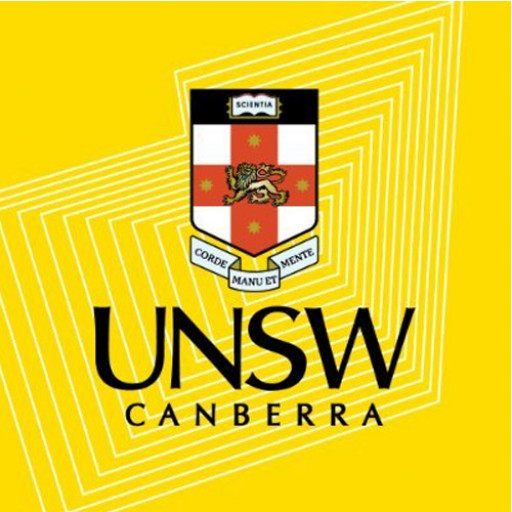Photos of university / #dtudk
The Bachelor’s degree program in Transport and Logistics at DTU (Technical University of Denmark) is a comprehensive undergraduate program designed to prepare students for dynamic careers in the transportation and logistics sectors. This program provides students with a solid foundation in the core principles of supply chain management, transportation planning, logistics strategies, and infrastructure development. The curriculum combines theoretical knowledge with practical application, ensuring graduates are equipped to address the complex challenges faced by modern logistics providers and transportation companies.
Throughout the program, students delve into subjects such as transportation economics, modal transportation systems, digital technologies in logistics, and sustainable transport solutions. They gain insight into the management of both inland and international logistics operations, understanding the importance of efficient transportation networks in global commerce. The program emphasizes the integration of digital tools and data analysis methods to optimize logistics processes and improve decision-making efficiency. Students also explore topics related to infrastructure development, environmental impact reduction, and transportation safety.
The program fosters interdisciplinary skills by incorporating elements of engineering, economics, and business management. Students engage in project work, case studies, and collaboration with industry partners, providing real-world experience and networking opportunities. Strong emphasis is placed on innovation, sustainability, and adaptability within the transportation and logistics industries. Graduates of the program are prepared for diverse roles such as logistics planners, transportation analysts, supply chain managers, and operational coordinators in various sectors including freight forwarding, shipping, and public transportation.
The educational environment at DTU promotes critical thinking, problem-solving, and teamwork skills, essential attributes for effective logistics professionals. The program’s close ties to industry and ongoing research ensure that students learn about the latest technological advancements and emerging trends, such as automation and the digital transformation of transport systems. Given DTU’s reputation for technical excellence, students are also offered internships, excursions, and project collaborations that enhance their practical experience and employability.
Upon completion, graduates are well-prepared to contribute to the development of efficient, sustainable, and innovative transportation solutions that meet the demands of a rapidly evolving global economy. The program aims to cultivate skilled professionals who can manage complex logistical challenges with technical competence and strategic insight, fostering sustainable growth and improved transportation infrastructure worldwide.
In order to obtain the MSc degree in Transportation and Logistics the student must fulfil the following requirements:
- Have passed General Competence Courses adding up to at least 30 points
- Have passed Technological Specialization Courses adding up to at least 30 points
- Have performed an MSc thesis of at least 30 points within the field of the general program
- Have passed a sufficient number of Elective Courses to bring the total number of points of the entire study up to 120.
Curriculum
The degree program is composed of 4 course blocks: General Degree Competencies (30 ECTS credit points), Technological Specialization (30 ECTS credit points), Elective Courses and Master Thesis (total of 60 ECTS credit points).
The degree program spans activities at two departments at DTU, which also offers other degree programs. Whether or not an MSc thesis falls within the intentions for the particular degree program is dependent on the approval of the director of studies. Students are recommended to seek prior approval of their MSc thesis as being within the parameters of the degree program.
General admission requirements
Only applicants holding either a Bachelor of Science in Engineering, a Bachelor in Engineering or a Bachelor of Natural Science degree can be admitted to a Master of Science in Engineering programme. From September 2017 the bachelor degree must be less than 10 years old.
The individual MSc Eng programme states in detail which bachelor programmes qualify and whether applicants have to complete supplementary educational activities.
Requirements for supplementary educational activities can equate to up to 30 ECTS credits and are specified in the form of a list of courses under the individual MSc Eng programmes.
The specific requirements must be met before graduating from the bachelor programme or in connection with conditional admission to a particular MSc Eng programme. The courses must be passed prior to the commencement of studies within one year from the conditional admission.
Supplementary educational activities in connection with conditional admission to an MSc Eng programme do not form part of the MSc Eng programme, and partial tuition fees are charged. If the supplementary courses have not been passed within the deadlines specified, the conditional admission to the programme is withdrawn.
The Master of Science in Engineering programmes are offered in English. Therefore applicants must demonstrate proficiency in English (B-level, IELTS, TOEFL- or Pearson test).
Academic requirements for this programme
To qualify for admission to the MSc Eng programme in Transport and Logistics, students are required to have completed a BSc Eng in either civil engineering, mechanical engineering, industrial engineering, software engineering or a similar programme in engineering science.
The following BSc Eng programmes at DTU entitle students to admission to the MSc Eng programme in Transport and Logistics
- Civil Engineering
- Strategic Analysis and Systems Design
- Software Technology
- Mathematics and Technology
- Mechanical Engineering
Students holding a Bachelor of Engineering degree in Trafic and Transport have access to be admitted subject to having completed course 01025/01035/01037 Advanced Engineering Mathematics 2 (or similar) from September 2015.
Students holding a Bachelor of Engineering degree in Building and Civil Engineering (IHA) have access to be admitted subject to having completed courses equivalent to 02402 and 42101 and from 2015 course 01025/01035/01037 as presented in the table below.
Students holding other B Eng degrees may be eligible for enrollment on this MSc Eng programme. Individual assessment will be made as to whether applicants meet the academic requirements and the requirements for minimum 15 points for scientific disciplines (one from each block). The individual assessment will typically comprise a personal interview with the Head of Studies, who decides the study plan for the prospective student so that he/she can commence studies as soon as possible. The requirement that students have completed 15 points (5 points from each block) is specified below, and it can be fulfilled either by completing specific courses at DTU or by having completed courses in connection with a research based program which in content and level is equivalent to the courses mentioned:
Block 1
| 01025 | Advanced Mathematics 2 for Mathematics and Technology | 5 | point | E1A (Mon 8-12) |
| 01035 | Advanced Engineering Mathematics 2 | 5 | point | E1A (Mon 8-12), E2B (Thurs 8-12), F2B (Thurs 8-12) |
| 01037 | Advanced Engineering Mathematics 2 (Summer University) | 5 | point | August |
Block 2
| 02402 | Introduction to Statistics | 5 | point | E3A (Tues 8-12), F4A (Tues 13-17) |
| 02403 | Introduction to Mathematical Statistics | 5 | point | June |
| 02405 | Probability theory | 5 | point | E4B (Fri 8-12) |
Block 3
| 42101 | Introduction to Operations Research | 5 | point | E2A (Mon 13-17), F2A (Mon 13-17) |
We recommend that students take some or all of the following courses as part of their BSc Eng/B Eng, or that they check the prerequisites for the individual courses in the course of study chosen in the Study Handbook:
Tuition in programming/computer science equivalent to one of the courses 02101, 02102, 02312 or 02318.
| 02402 | Introduction to Statistics | 5 | point | E3A (Tues 8-12), F4A (Tues 13-17) |
| 02405 | Probability theory | 5 | point | E4B (Fri 8-12) |
| 42101 | Introduction to Operations Research | 5 | point | E2A (Mon 13-17), F2A (Mon 13-17) |
| 42175 | GIS and Road Traffic Planning | 10 | point | E3 (Tues 8-12, Fri 13-17) |
| 42176 | Public Transport Planning | 10 | point | F2A (Mon 13-17) and F2B (Thurs 8-12) |
| 42872 | Basic course in traffic and roads | 5 | point | E5A (Wed 8-12) |
| 42873 | Geometric Highway Design | 5 | point | January |
| 42874 | Road traffic simulation | 5 | point | January |
| 42875 | Transport logistics and optimisation | 5 | point | E5B (Wed 13-17) |
Prospective students holding a BSc Eng or B Eng from other academic institutions may qualify for admission if the components of their qualifications are equivalent to those described above.
Those holding a BSc Mathematics or BSc Mathematics and Economics are also eligible. Students admitted to this degree programme are recommended to contact the Head of Studies for advice on course selection.
The Finance options for the Transport and Logistics program at the Technical University of Denmark are designed to support both local and international students in their educational pursuits. Tuition fees are subject to changes depending on the student’s nationality, study level, and specific program regulations. For EU/EEA students, the program generally offers a tuition-free education, as Denmark provides free higher education to citizens of EU countries, supported by government subsidies. Non-EU/EEA students are required to pay tuition fees, which typically range from approximately 10,000 to 16,000 EUR per academic year, depending on the specific program and university regulations. These fees cover access to university facilities, lectures, laboratories, and online learning resources.
In addition to tuition fees, students are encouraged to explore various financing opportunities including scholarships, grants, and student loans. The Danish Government and the university itself offer numerous scholarship programs, especially for highly talented students. These scholarships may cover full or partial tuition costs and are often awarded based on academic merit, financial need, or a combination of both. International students are advised to apply early for these scholarships, as competition can be intense.
Students may also consider external funding options such as European Union grants, private scholarships, or financial aid from their home countries, which can help offset living expenses and study costs in Denmark. The cost of living in Denmark varies but generally includes accommodation, transportation, food, health insurance, and leisure activities. On average, students should budget approximately 800 to 1,200 EUR per month for living expenses.
Students are also responsible for securing comprehensive health insurance coverage, which might be included within the tuition fee or obtained separately, depending on the student’s country of residence. For those who qualify, work opportunities are available during studies, allowing students to earn supplementary income to support their finances. Part-time jobs must adhere to university policies and Danish labor laws, typically allowing students to work up to 20 hours per week during academic sessions.
Overall, while the Danish government and university offer support structures for financing education, prospective students should plan their budgets carefully considering tuition fees, living expenses, and potential funding sources. The university’s admissions office provides detailed guidance on available financial aid options and application procedures, helping students navigate financing their studies efficiently.
Transport and Logistics at the Technical University of Denmark is a comprehensive program designed to equip students with essential knowledge and skills in planning, executing, and managing transportation and logistics operations. The program emphasizes a multidisciplinary approach, integrating engineering, economics, management, and information technology to prepare graduates for the dynamic challenges of the transportation sector. Students will study core topics such as supply chain management, transportation planning, route optimization, logistics systems, and sustainable transportation solutions. The curriculum also includes courses in project management, data analysis, and the use of advanced software tools to enhance operational efficiency. The program aims to develop students' analytical capabilities, problem-solving skills, and strategic thinking, enabling them to optimize logistic networks and improve transportation systems. Practical training, including internships and project work in collaboration with industry partners, is an integral part of the program, providing real-world experience and networking opportunities. Graduates are prepared for careers in various sectors such as freight and passenger transport, logistics companies, government agencies, and consultancy firms. The program is conducted in close collaboration with industry stakeholders to ensure the curriculum remains relevant to current technological advancements and economic trends. Students also benefit from access to state-of-the-art laboratories and research centers dedicated to transportation and logistics research. The program spans approximately two years for master's students and offers international exchange opportunities, allowing students to study abroad and gain global perspectives. Upon completion, graduates earn a Master of Science degree in Transport and Logistics, providing a solid foundation for future leadership roles in the transportation sector or further academic pursuits.







